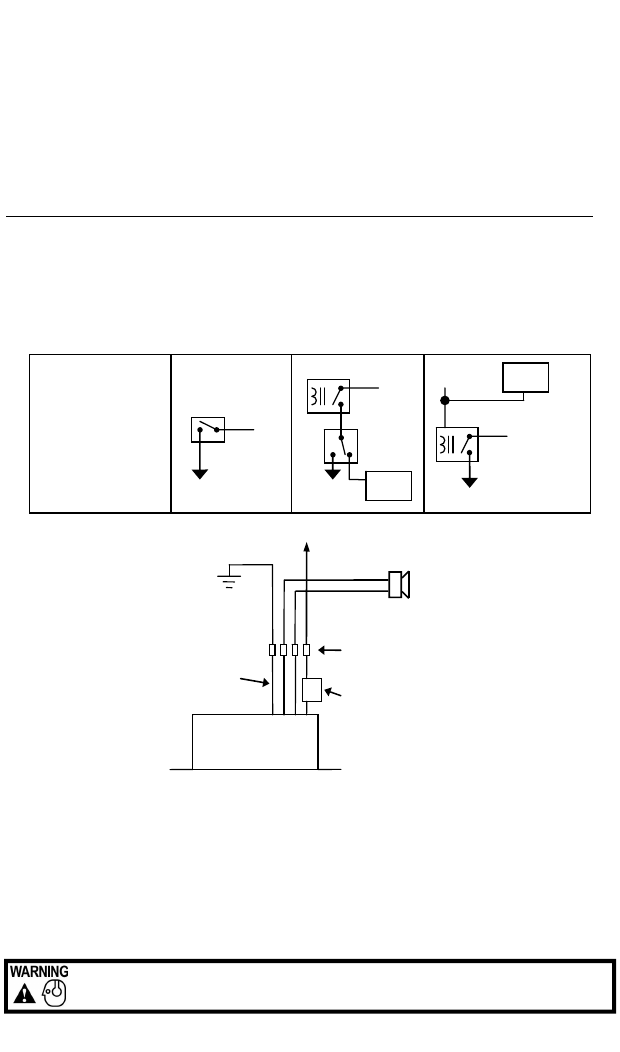
HA-150-10 14 Installation and Operating Instructions Page 3 of 4
CP5050A 01/27/10
MOUNTING
The unit is waterproof and may be located under hood in the engine compartment or other areas.
Allow clearance for wiring. Inspect behind mounting area for clearance.
ELECTRICAL CONNECTIONS
Electrical connections to the unit are made using butt splices (not supplied). The butt splices
need to be waterproof when unit is mounted under hood or other weather susceptible areas. A
label on the unit identifies each lead function. The power supply of the unit must be capable of
delivering peak currents up to 50 amps for adequate short circuit protection and reliable operation.
The unit is provided with an in-line fuse.
Failure to adequately crimp splices can result in improper operation or burning the wire.
Wire Size and Termination - The diagram shows the minimum wire size used for each connec-
tion, along with recommended lead color. If the wire is longer than 15 ft. use the next larger wire
size. Use only high quality crimp connectors for installation on the vehicle.
NOTE: Permanent disconnection of the vehicle horn is NOT recommended.
OPERATION
As soon as power is applied, the unit produces a simulated air horn sound and the power indica-
tor lights up. The power indicator is located on the same surface where wires emerge from unit.
In-line fuseholder
with 15A
Automotive Type Fuse
#18G BRN
#18G BRN
#16G RED to +VDC
#16G BLK to -VDC
Waterproof butt splices
for under hood install
Match lead colors
coming from unit
Amplifier Power
Connection Examples
Assumes Power is +VDC
May be powered with
-VDC instead, just change
to -VDC and Amp NEG in
diagrams.
HORN RLY
+VDC
Added
SPDT
Switch
Vehicle
Horn
+VDC
Momentary
SPST
Switch
To Amp POS
Horn
Circuit
Note:
Vehicle horn
will also sound
Vehicle
Horn
S
p
lice
To
Amp POS
To Amp POS
+VDC
Added
Relay
Sound Hazard - Sound level from horn speaker (>120dBA @ 10 feet) may cause hearing damage.
Do not operate unit without adequate hearing protection for you and anyone in immediate vicinity.
(Ref. OSHA 1910.95 for occupational noise exposure guidelines)






